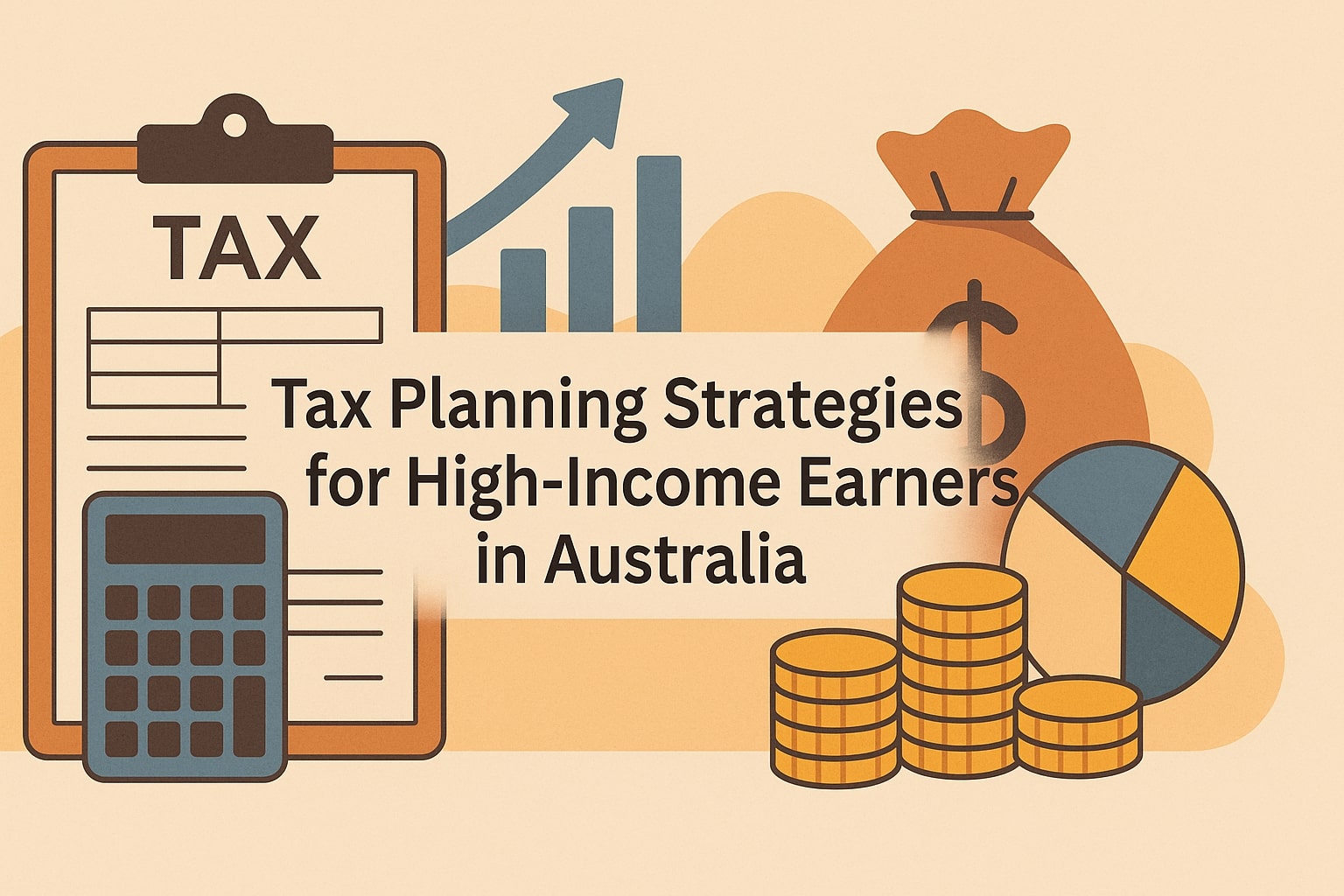
“`html
Effective Tax Planning Strategies in Australia: A Comprehensive Guide
Estimated reading time: 6 minutes
Key Takeaways
- Tax planning is a legal and ethical way to optimise your finances.
- Strategic tax planning benefits individuals and businesses.
- Superannuation, income structuring, and offsets are key tax planning tools.
- Timing income and expenses strategically can lead to significant savings.
- Meticulous record-keeping is crucial for compliance and maximising deductions.
Table of Contents
1. Understanding Tax Planning in Australia
Tax planning involves strategically managing your finances to comply with Australian tax laws and minimise your tax liability. This is particularly important for small business owners who need to understand their compliance obligations. See our guide to small business tax requirements for more information.
It’s about being proactive and strategic throughout the financial year.
Benefits of Strategic Tax Planning:
- Ensures legal compliance with the Australian Taxation Office (ATO).
- Helps you retain more of your income.
- Maintains positive cash flow.
- Allows for adaptability to changes in tax laws.
- Provides long-term financial visibility.
Who benefits? Many Australians can benefit from tax planning, including businesses, individuals, investors, and high-income earners. For example:
- Business owners can use our sole trader tax return guide.
- Individuals can learn about claiming legal tax deductions.
- High-income earners can understand the implications of recent personal tax changes.
2. Long-Term Tax Minimisation Strategies
Instead of relying on last-minute tax strategies, consider long-term planning. This involves structuring your financial affairs to consistently reduce your taxable income over time.
Income Splitting Strategies
- Explore the use of family trusts.
- Structure your business to pay family members.
- Create shareholding structures to optimise dividend payments.
Superannuation
- Concessional contributions are taxed at 15%, significantly lower than many personal tax rates.
- Withdrawals are generally tax-free after age 60.
- The compounding nature of superannuation boosts retirement savings.
Tax Offsets
- Private health insurance offset
- Senior Australian rebate
- Franking credits – learn more about maximising your tax refund
3. End-of-Year Tax Planning
Before June 30th, thoroughly review your financial situation. Use our comprehensive EOFY checklist to help guide you.
Deferring Income
- Delay issuing invoices.
- Postpone sales transactions.
- Defer investment income receipt.
Prepaying Expenses
- Bring forward business purchases; consider utilising instant asset write-offs.
- Prepay insurance premiums, rent, and subscriptions.
Superannuation Contributions
- Pay employee superannuation contributions before June 30th.
- Make personal concessional contributions before the deadline.
Capital Gains Tax (CGT) Considerations
- Use capital losses to offset capital gains.
- Hold assets for more than 12 months to access the 50% CGT discount.
- Review potential pre-CGT asset exemptions.
4. How to Legally Reduce Your Tax
Tax minimisation is about making the most of the legal provisions available to you, not about avoiding your tax obligations.
Maximise Deductions
- Claim work-related expenses and self-education expenses.
- Claim deductible investment-related interest.
- Learn more about claiming work-from-home deductions.
Utilise Tax Offsets and Rebates
- Low-income tax offset
- Seniors and pensioners tax offset
- First home buyer assistance scheme
Superannuation Contributions
- Contribute to superannuation to take advantage of the 15% concessional contribution tax rate.
- Salary sacrifice to reduce your taxable income.
- Self-employed individuals can claim personal contributions.
Frequently Asked Questions
Q: Is tax planning legal in Australia?
Yes, as long as it fully complies with ATO legislation and avoids artificial tax avoidance schemes.
Q: What’s the best legal way to minimise my tax liability?
Claim all legally permitted deductions, contribute to superannuation, structure your income strategically, and utilise available tax offsets.
Q: How often should I engage in tax planning?
At a minimum, annually. More frequent planning is advisable if your circumstances change significantly or you run a business.
Important Disclaimer:
The information provided in this content is for general informational purposes only and does not constitute legal, financial, or professional advice. Regulations and circumstances may vary based on your individual situation. You should always seek advice from a qualified professional, such as a registered tax agent, solicitor, or industry expert, before making any decisions or taking any action.
“`